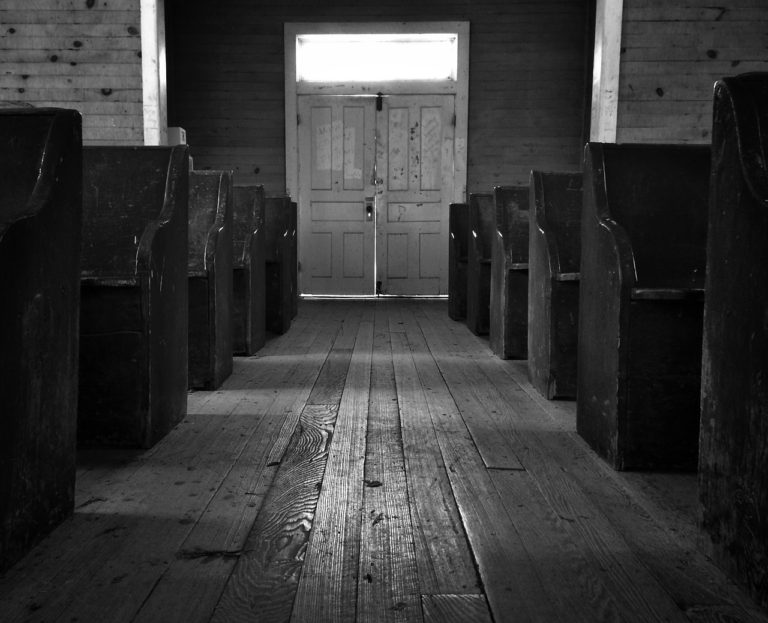A little over a year ago, my eighteen-year-old brother was killed in a car accident. It was the kind of tragedy that causes you to wonder what God could possibly be doing. But I’m not here to talk about death or grief today. What I want to talk about is something altogether different.
A few close friends from my high school days attended the visitation. One of them pulled me aside and said that my ex (I’ll call him M), with whom she kept in touch, had seen her post a prayer request on behalf of my family on Facebook. M didn’t have access to my Facebook page (thank you, privacy settings), so he reached out to her and asked her for more information. In fact, he convinced her to take a screen shot of my Facebook post about my brother’s death and send it to him. How had M convinced her to invade my privacy so blatantly? He’d argued that my family used to be his family, that he was devastated by the death of my brother. He appealed to her emotions, to her sense of compassion. Then, he asked her to convince me to get in touch with him so that he could express his condolences. He told her he missed me, that he wished we could at least be Facebook friends, that he didn’t understand why I refused to be in contact with him.
I was both stunned and not stunned that he’d made such a determined attempt to manipulate her. It’s been over fifteen years since M and I were together. That’s a long time. I don’t know about you, but my life at forty looks much different than it did at twenty-five. I’m a different person in many ways, thanks to time and experience. For another thing, my brother was adopted into our family about six months before my relationship with M ended, and he was three years old at the time, so they never really knew each other. The death of my brother shouldn’t have been a personal blow to M. So what was his deal?
I believe it has to do with forgiveness.
My relationship with M ended badly. He had some issues that couldn’t be overcome. In the aftermath, he wanted to remain friends—he wanted my continued support, my shoulder if you will. He wanted to be able to ignore the fact that he’d built our relationship on a lie. But I recognized that it would be unhealthy for me to stay in contact. Once I’d put some time and distance between us, I could see that my relationship with M was characterized by codependency and that it reinforced my low self-esteem. It was a crutch. I knew it was best for me to move on.
As the years passed, M reached out time and again, sometimes kindly and other times with words of resentment that made it clear he felt rejected. He called and brought up shared memories and interests in an attempt to connect emotionally. I changed my phone number, and he got the new one from a mutual friend. Then social media came along and he reached out via Facebook. I moved away, and he found me. Every one to three years, I’d hear from him again. Sometimes, the occasion was a loss, like the death of a grandparent. In these situations, I’d respond with careful words of sympathy, but no matter how polite and formal I tried to keep things, he always interpreted my response as an invitation for more. Finally, I realized I had to stop responding completely, no matter the situation, or he’d be reaching out to me for the rest of my life.
At one point, I said to him, “Look, I don’t know how to say this any more clearly. I’m not the same person. I’ve grown and changed. I’ve forgiven you, and I’ve moved on. You need to do the same thing.”
In Matthew 18:21-22, Jesus explains how we are to forgive others: “Then Peter came to Jesus and asked, ‘Lord, how many times shall I forgive my brother or sister who sins against me? Up to seven times?’ Jesus answered, ‘I tell you, not seven times, but seventy-seven times.'”
Yes, we are to forgive as many times as it takes. But Jesus doesn’t say we are to allow people who have hurt us to keep hurting us in the same ways over and over, or that forgiveness means entering back into relationships without boundaries or with unhealthy patterns like abuse or codependency, or even relationships that tear us down. In fact, the Bible gives some strong indications that we are to remove ourselves from unhealthy and damaging relationships, especially those with unbelievers (see 2 Cor. 6:14-18) . The Bible tells us, “Above all else, guard your heart, for everything you do flows from it” (Prov. 4:23).
Forgiveness is a heart action. It happens inside us. And in fact, forgiveness protects our hearts from becoming bitter and cold.
However, forgiveness is something we can’t force other people to receive. We can forgive others, but we have no control over whether or not they forgive themselves.
A close friend who is a counselor helped me to see that in all likelihood, M has not forgiven himself in some way. It’s likely he believes reconciling with me will make him feel better, will bring him healing from whatever guilt or responsibility he still carries. Whatever the driver, it’s pretty clear he’s never fully let go. I am not responsible for his burdens, whatever they are, or for his healing process.
On occasion, someone will tell me I’m being small-minded and judgmental by not allowing M back into my life. I have to set their words aside, knowing they can’t understand how doing so would be forty-two different degrees of unhealthy for me. I have a husband and two little girls. I can’t bring M into my family, and I can’t dishonor my husband by having a connection with M outside my family. Nor do I want to.
A few days after my brother’s funeral, a card arrived in the mail from M. I didn’t open it. Whatever was inside was unsolicited, and was in fact a violation of my boundaries. I didn’t feel obligated to read it.
Forgiveness means you can move on in freedom.
I tell this story for those of you who struggle with what forgiveness really means. For those of you who secretly fear Jesus would have you embrace a former abuser in the name of forgiveness. For those of you who long for freedom but worry that extricating yourself from a codependent relationship will be an act of unforgiveness. For those of you with your own savior complex, who can’t shake the feeling that you ought to help an abuser find healing. For those of you who are still being pursued by your pasts.
It’s easy to forget that God has other people safely in his hands, and we can entrust their lives, their hearts, and their needs to him. He is the great healer.
[Tweet “Jesus doesn’t ask us to be anyone’s savior, anyone’s redeemer.”]All Jesus asks us to do is forgive those who hurt us. If we have forgiven in our hearts, we are free to move on, without guilt, without shame, without further obligation. We can freely set boundaries that give us healthier lives.




Yes! All of it! “For those of you who long for freedom but worry that extricating yourself from a codependent relationship will be an act of unforgiveness. For those of you with your own savior complex, who can’t shake the feeling that you ought to help an abuser find healing…”
Well said, Harmony!
So beautifully brave!!! Thank you sharing your heart.
This was beautiful. This is the road I’ve had to walk with my relationship with my father. It took a long time to understand that forgiveness does not mean opening the door to more abuse and that is not something that everyone understands. …
Such wise words, Harmony. Your perspective is spot on and an important part of being a healthy grown up. So many people I have worked with over the years, women in particular, allow unhealthy or toxic people in their lives long after it is good for anyone involved. Freedom and forgiveness, even love for the other person, does not require proximity or ongoing relationship. Good for you for setting AND keeping healthy boundaries. So happy to be reading your writing this week!! Love you, sister!